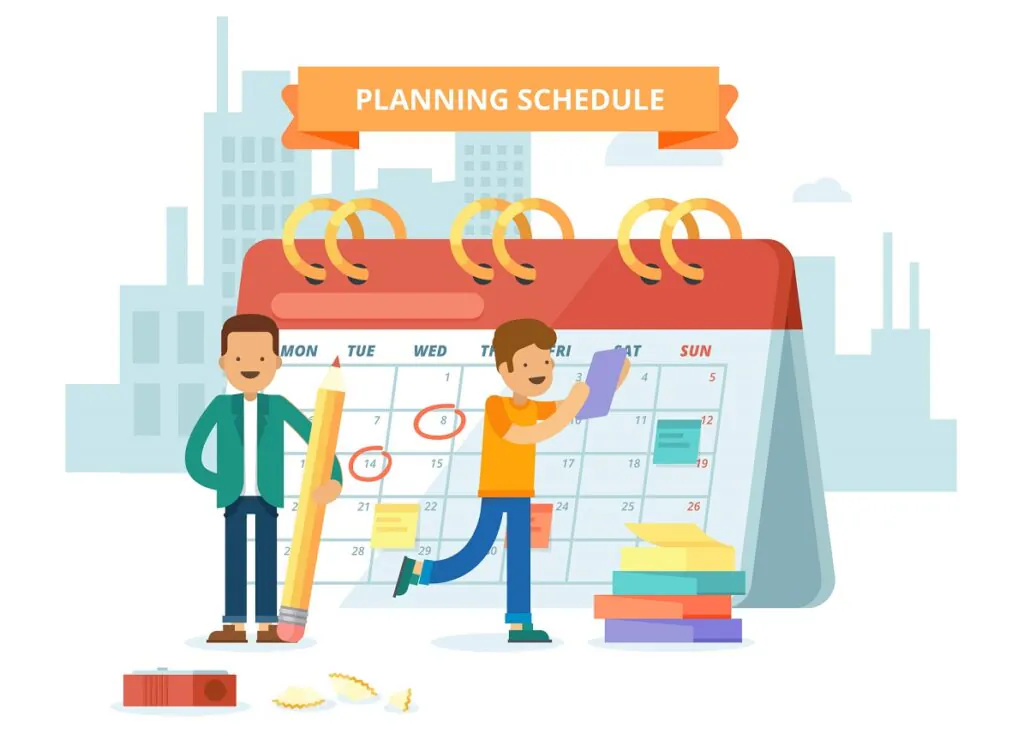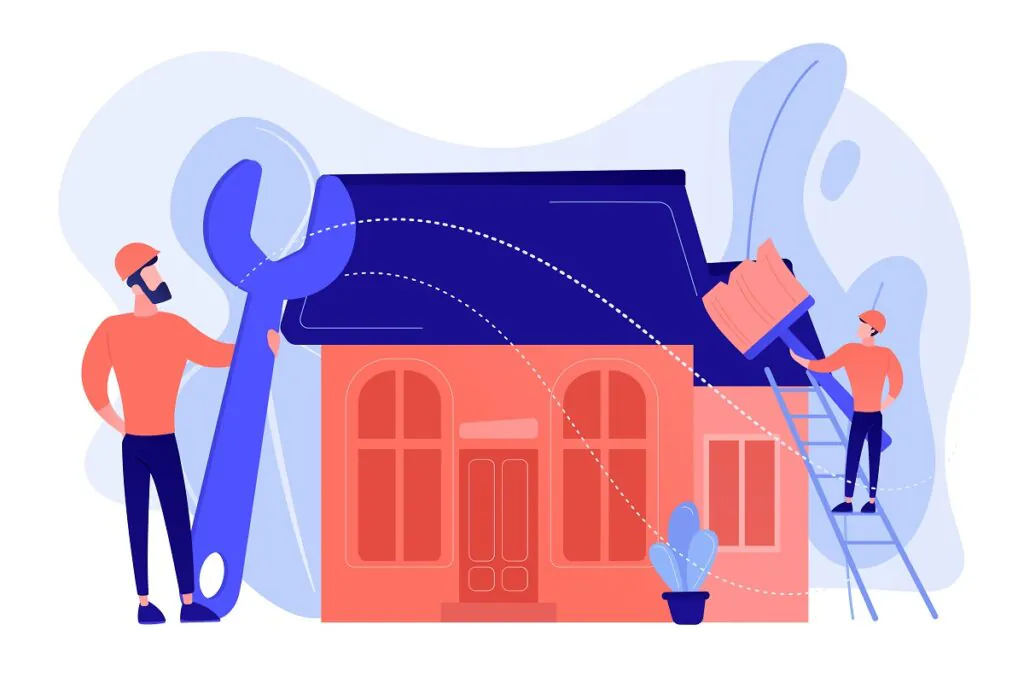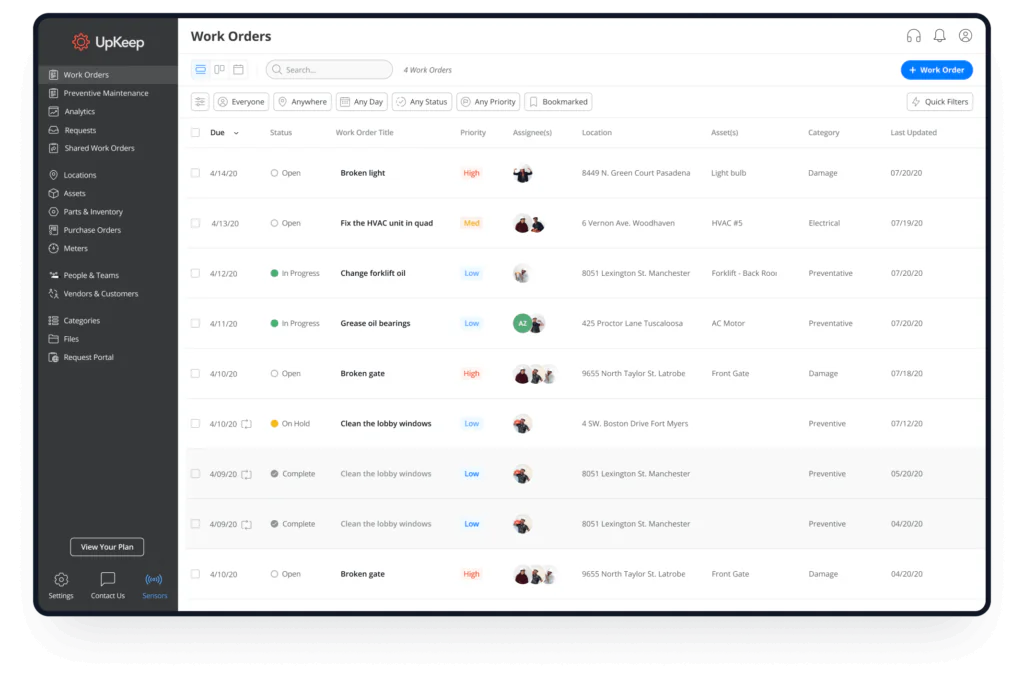Building Maintenance Schedule Mastery: Your Ultimate Guide

A well-structured building maintenance schedule is crucial for property owners, property managers, and builders to ensure the longevity and functionality of a building. Whether you’re managing a commercial building, condominium, or any other property, a strategic schedule can save time, money, and prevent unexpected issues. In this comprehensive guide, we will explore how to make a building maintenance schedule, provide templates, and discuss various property types, including commercial buildings and condominiums.
Table of Contents
Importance of a Building Maintenance Schedule

Cost Savings
A well-planned builders maintenance schedule can help you save money in the long run by identifying and addressing minor issues before they become expensive problems. Regular inspections and preventative maintenance reduce the likelihood of unexpected repairs and help optimize the building’s overall operational efficiency.
Increased Lifespan
Routine maintenance ensures that your building’s components, such as HVAC systems, electrical systems, and structural elements, remain in good condition. By addressing wear and tear promptly, you can prolong the lifespan of these components, ultimately extending the life of your building.
Safety and Compliance
A comprehensive building maintenance schedule ensures that safety hazards are identified and addressed promptly, protecting tenants, visitors, and employees. Moreover, adherence to local regulations and building codes is essential to avoid fines and penalties.
Tenant Satisfaction
Regular maintenance contributes to a clean, safe, and well-functioning environment, which plays a critical role in tenant satisfaction and retention. A proactive approach to upkeep signals to occupants that their comfort and safety are priorities.
How to Make a Building Maintenance Schedule
Identify Maintenance Tasks
First, create an inventory of all maintenance tasks, including inspections, cleaning, servicing, and repairs. Consider all aspects of the building, such as HVAC systems, plumbing, electrical, structural, and safety equipment.
Determine Task Frequency
Next, determine how often each task should be performed. Some tasks may require daily attention, while others might be performed monthly, quarterly, or annually. Consult manufacturer recommendations, industry best practices, and local regulations to establish appropriate frequencies.
Create a Timeline
With task frequencies established, develop a timeline for your building maintenance schedule. Consider seasonality, tenant needs, and resource availability when planning. Be sure to allow for flexibility, as unplanned events or emergencies may require adjustments.
Allocate Resources
Identify the personnel, tools, and materials needed for each maintenance task. Consider whether to utilize in-house staff or hire external contractors. Budget for ongoing and future expenses, and plan for contingencies.
Monitor and Adjust
Regularly review and update your building maintenance schedule to ensure its effectiveness. Track progress, adjust task frequencies as needed, and incorporate feedback from tenants and staff.
Building Maintenance Schedule Template
Use the following template as a starting point for creating your customized building maintenance schedule. Adapt it to your specific property type and maintenance requirements:
| Task | Frequency | Responsible Party | Resources Needed | Notes |
|---|---|---|---|---|
Building Maintenance Schedule Example
| Task | Frequency | Responsible Party | Resources Needed | Last Completed | Notes |
|---|---|---|---|---|---|
| Roof inspection | Quarterly | ||||
| HVAC system servicing | Annually | ||||
| Fire alarm testing | Monthly | ||||
| Cleaning of common areas | Daily | ||||
| Electrical system inspection | Annually | ||||
| Plumbing inspection | Annually |
Building Maintenance Software

Building maintenance software can significantly streamline the process of building managing and tracking all aspects of building maintenance. They allow you to schedule tasks, assign work orders, track progress, and document expenses, thus ensuring nothing falls through the cracks.
- UpKeep: This mobile-friendly maintenance software is user-friendly and allows for efficient work order management, asset tracking, and preventive maintenance scheduling. With UpKeep, managers can also monitor inventory and receive real-time notifications for critical issues.
- Hippo CMMS: Hippo is a powerful, yet easy-to-use software that offers features like work order management, preventive maintenance scheduling, and equipment management. It also provides detailed analytics and customizable reports for better decision making.
- Fiix: Fiix offers a comprehensive cloud-based CMMS solution. Key features include asset management, work order management, preventive maintenance, and inventory management. Fiix also integrates with business software for streamlined operations.
Here’s a chart highlighting some of their features:
| Software | Work Order Management | Preventive Maintenance | Asset Tracking | Inventory Management | Mobile Access | Integration Capabilities |
|---|---|---|---|---|---|---|
| UpKeep | Yes | Yes | Yes | Yes | Yes | Limited |
| Hippo CMMS | Yes | Yes | Yes | No | Yes | Limited |
| Fiix | Yes | Yes | Yes | Yes | Yes | Yes |
Commercial Building Maintenance Schedule
HVAC Systems
Commercial buildings typically require more frequent HVAC maintenance due to higher occupancy and usage. Inspect filters, belts, and components regularly, and schedule professional servicing as needed.
Plumbing and Electrical Systems
Regularly inspect plumbing fixtures, pipes, and electrical wiring for signs of wear or damage. Schedule routine servicing and cleaning for optimal performance and safety.
Exterior and Interior Maintenance
Inspect the building’s exterior and interior for signs of damage, such as cracks, leaks, or peeling paint. Schedule cleaning, painting, and repairs as needed to maintain a professional appearance and prevent deterioration.
Fire and Safety Systems
Ensure that fire alarms, sprinkler systems, and emergency exits are inspected, tested, and maintained according to local regulations. Schedule regular safety training for building occupants and staff.
Intercom System
Incorporate regular maintenance of the intercom system into your building maintenance schedule. Intercom systems play a vital role in communication and security within condominiums and commercial buildings. Ensure that all components, including speakers, microphones, and control panels, are functioning correctly. Schedule routine inspections to identify any issues, such as poor audio quality, unresponsive controls, or faulty connections. Arrange for prompt repairs or replacements as needed to maintain the system’s reliability and performance.
Condominium Building Maintenance Schedule
Common Areas
Clean and maintain common areas, such as hallways, lobbies, and recreational facilities, on a regular basis to ensure a comfortable and inviting environment for residents.
Structural Elements
Inspect structural elements, such as roofs, walls, and foundations, for signs of wear or damage. Schedule repairs and preventative measures to maintain the building’s integrity and safety.
Systems and Utilities
Regularly inspect and maintain HVAC, plumbing, and electrical systems, as well as elevators and other utilities. Schedule routine servicing to ensure optimal performance and tenant satisfaction.
FAQs
Conclusion
A comprehensive building maintenance schedule is essential for property owners, managers, and builders to ensure the longevity and functionality of a building. By following our guide and using the provided templates, you can create an effective schedule tailored to your specific property type, be it a commercial building or a condominium. Keep in mind that regular review and adjustment of your schedule are crucial to ensure its ongoing effectiveness and adapt to changing needs.